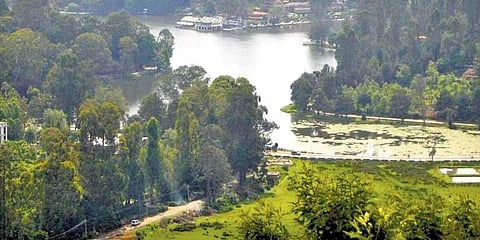

In 2015, a rap song, titled Kodaikanal Won’t, by Sofia Ashraf went viral. It was aimed at holding Hindustan Unilever (HUL) accountable for its failure to compensate the residents of the idyllic hill town in Tamil Nadu. HUL had been producing mercury thermometers in the region for export around the world until 2001, when it was shut down due to local protests over alleged metal pollution. Among
the most severe chemical disasters in the country,its toxic impact on ecology and the health of workers continues to be felt over two decades later.
Ameer Shahul, a former journalist and Greenpeace campaigner, in his new book, Heavy Metal, digs deep into the company’s role in causing the catastrophe. It exposes the fallouts of corporate greed by raising significant questions about social responsibility of brands. Through outstanding investigation and thorough research, he also retells the story of community resilience in Kodaikanal.
The locals’ fight against HUL lasted for about 15 years, ultimately forcing the company to pay an undisclosed settlement to 600 former employees. It was believed to be the second highest compensation paid by a corporate in the country, after the 1984 Bhopal gas tragedy, which claimed over 20,000 lives and exposed another 80,000 to poisonous methyl isocyanate. Additionally, the mounting pressure from activists also compelled then-CEO of Unilever Plc, Paul Polman, to confess the “company’s significant historical lapses”, a rare move by any such executive in history.
The investigation into the Kodaikanal story, however, was more than just a reporting assignment for the author. It was, he says, deeply personal. He arrived in the town for the first time as a reporter for Agency France-Presse in 2001. His stories made national headlines after a large dump of broken mercury thermometers was discovered in a shipyard. The company, however, promptly released an internal cover-up report, which the locals objected to, leading to further scrutiny and action. HUL’s mishandling of the metal forced people to come together and hold the corporation accountable. The book builds on Shahul’s reportage at the time to reveal a larger picture of how multinational corporations from the global north exploit the south as a dumping ground.
A significant portion of Heavy Metal is also dedicated to show what it takes to take on a mammoth legally. To say the least, it was a challenge. “Indian judicial system had no provision for class action lawsuits, unlike in the West, where a group of people could sue a private corporation for allegedly causing them certain damage,” writes Shahul. So, it was a task to first identify and locate people affected by the poisoning. When they were identified, several victims had no record of being HUL employees, some had lost their medical records, and many were simply not interested in being part of the case.
Despite the roadblocks, in March 2006, a petition was filed demanding the prosecution of the company, and reparation for those affected. The petition also sought the court’s direction for the government to revise occupational health and safety standards.HUL spared no effort to escape liability for its misconduct, as evidenced by its publication of a study on the occupational health of 255 workers. According to Shahul, however, the report reads more like “corporate promotional material” than a “peer-reviewed scientific evidence-based report”, and was even used as a counter to plaintiffs in the Madras High Court. The book cites scientific reports showing that mercury levels in Kodaikanal continue to remain 1,000 times higher than the safe limit.
Heavy Metal is an exceptional book that offers a comprehensive and compelling account of not just the disaster, but also its aftermath. Written over nearly 400 pages, the book is meticulous with well-crafted chapters. Shahul delves into the history of the company, its various cases of corporate negligence, and how it established its plant in Kodaikanal to begin with. The writing style keeps readers engaged. With climate change being a global concern, the release of the book––a stimulating take on corporate accountability and environmental justice, couldn’t have been timed better.